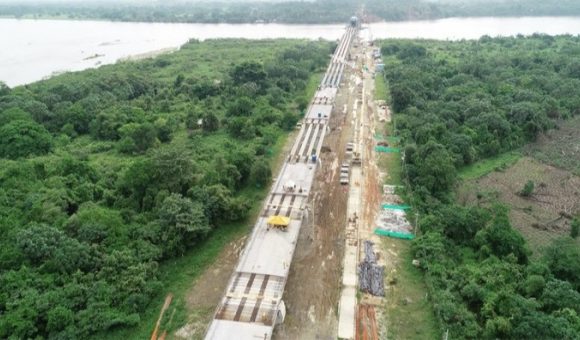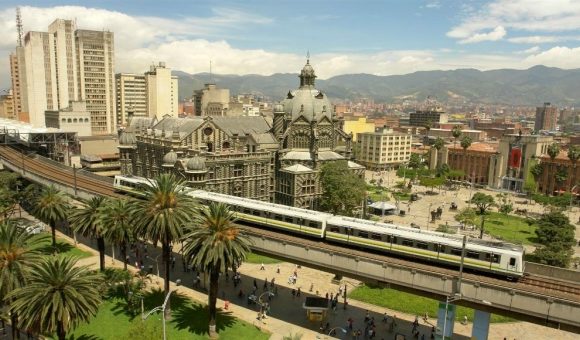New Antioquia Governor Promises Alternative Financing to Complete ‘4G’ Highways, Amend Hidroituango Contract

Newly elected Antioquia Governor Andrés Julián Rendón promised in an interview published today (November 1) in the Medellin-based daily newspaper El Colombiano that he has already come up with several ways to finance completion of the crucial “4G” highways linking Medellin to-and-from Atlantic and Pacific freight ports.
Current Colombia President Gustavo Petro — employing anti-capitalist, anti-Antioquia demagoguery — has refused all prior requests for federal funds to complete a few missing sections of these highways and tunnels, claiming that they’re just for “rich people.”
So, Rendón now proposes innovative ways to get-around Petro’s reactionary, socialist ideology, including working with Congress to amend the current rules for “public-private alliance” finance, to enable up-to-50% contract additions, rather than the current 20% limit.
But if that congressional initiative falls short, then Rendón promises to have Antioquia’s own “IDEA” infrastructure-funding agency to come-up with the estimated COP$3 trillion (US$729 million) to complete those “4G” roads and tunnels.
IDEA already is legally authorized to lend up-to COP$7 trillion (US$1.7 billion) for such projects, he added.
In support of that proposal, Rendón noted that “there is still very good liquidity in the domestic capital market. We must also go out and look for funds in the external capital market and ensure that IDEA is widely funded and can put those resources here” — including the possibility of funding a combined freight/passenger railroad northward from Medellin (eventually linking the city to the former Magdalena River ports).
As for urgent demands to add a second runway at Medellin’s capacity-crunched international airport at Rionegro, Colombia’s national government has failed to negotiate the required purchase of property rights with the 400 residents alongside the proposed runway, he noted.
While that required property-acquisition is out-of-the-hands of the Antioquia government, both Antioquia and Medellin governments can meanwhile focus on financing a dramatic expansion of the overcrowded airport terminal facilities, he added.
As for Antioquia’s majority-ownership share of the US$5 billion “Hidroituango” hydroelectric project here – now half-completed at 1.2-gigawatts output capacity, with the other 1.2-gigawatts scheduled to come on-line by 2027 – the Antioquia government intends to renegotiate its profit-sharing deal with EPM to account for a recent tripling in Colombia’s national electricity prices, he added.
Despite historic, substantial cost over-runs at Hidroituango – arising from a diversion-tunnel collapse in 2018, since rectified – electric prices in Colombia are now so lucrative that EPM cannot legitimately grab the bulk of profits from that project, Rendón argued.
“If you look at the [electricity sales] futures contract that EPM makes, it is three times the value of the initial contract,” Rendón stated in the interview.
“The price at which energy is sold has tripled, so that is a very important basis for negotiations, so that we can very quickly overcome the [Hidroituango] cost overruns and begin to make money for the Antioquia department” — especially given the 50% revenue declines in Antioquia’s historic dependence on liquor sales from its Fabrica de Licores de Antioquia (FLA) operations, he concluded.
















